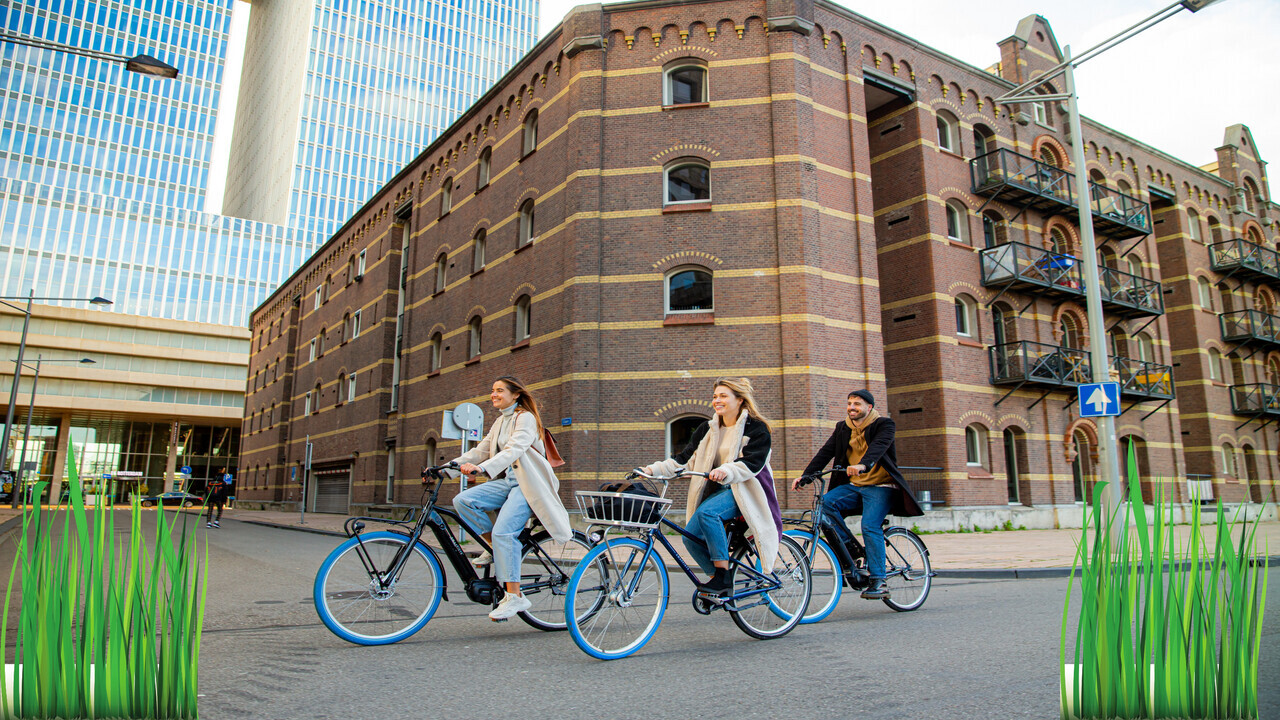
One of the last decade’s real advantages has been the introduction of new business models in micromobility. An example is Swapfiets, which is the world’s first “bicycle as a service” company.
We were, therefore, thrilled to have their CEO, Marc de Vries, take the stage at the TNW 2021 conference and tell us more about how the company is disrupting bike sustainability
Founded in 2014 in the Netherlands, the scale-up has over 260,000 members in the Netherlands, Germany, Belgium, Denmark, France, Italy, Austria, Spain, and the UK.
The concept of Swapfiets is quite simple: For a monthly subscription fee, Swapfiets members receive a fully functional bicycle or e-mobility solution for their own use. If needed, a repair service is available within 48 hours to repair or directly swap the two-wheeler at no additional cost.
The challenges of micromobility during COVID-19
Three students founded the company in 2014. Marc de Vries joined as CEO in January — yes, right in the middle of a pandemic when everyone was working from home. His earliest challenge was getting to know the company and getting a grip on the company’s culture. He noted:
Culture is what you see when other people aren’t watching
Then, there’s the pressure of coming on board, with an organization growing as its owners matured. As he explained:
If people ask me, ”What is it you really bring?” I’d say focus. The company is full of great ideas and energy. Therefore, I’m making sure every great idea can be validated and executed.
Further, the company is not immune to the difficulties of the semiconductor chip shortage. Chips are embedded into both the batteries and the bikes themselves.
Fortunately, the impact was reduced by a valuable partnership. They collaborated to order chips in bulk with suppliers Bosch and Shimano.
Sustainability-first and a move towards a circular economy
Swapfiets is a company that is leading the sector by greening their workflow. Take bike tires. Tires are usually tough to recycle. Earlier this year, the company partnered with Italian tire company Vittoria to improve performance and extend the lifespan of their electric bikes.

Swapfiets has subscribed to the Vittoria2GOservice — renting tires instead of buying them — in a key step towards achieving their goal of creating 100% circular bikes.
In the ”pay for use” business model, the manufacturer handles the value of a product throughout its lifecycle. The model provides an incentive to design products that are optimized for durability, ease of maintenance, and repair.
De Vries notes that the company is in a prime position to rethink the production supply chain. He remarked
that traditionally, most companies gave little thought to what happened to bikes when they were no longer in use. This has shifted to a trend to design bikes to last, creating perpetual bike models of repairing and reusing parts.
The company is aiming to produce a completely circular bike in the next three years.
Introducing Swapfiets’ The Power 1

The company launched its latest bike, The Power 1 in September. It’s named for its single-speed set-up, which means no gears, making it easy to use and maintain.
A Shimano E5000 e-bike system runs The Power 1, offering three levels of electrical assistance up to a top speed of 25kmph. When fully charged, the battery provides a maximum range of up to 80km — perfect for a full day of work and play in the city.
Given how sleek this bike looks, we can’t wait for the fully circular one
Get the TNW newsletter
Get the most important tech news in your inbox each week.




